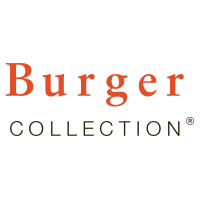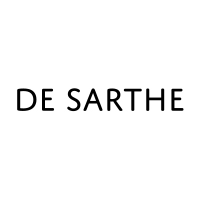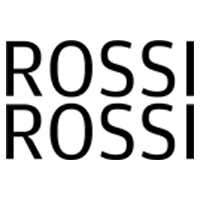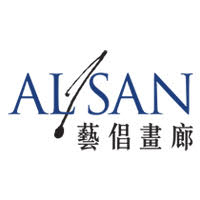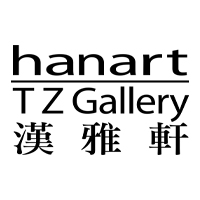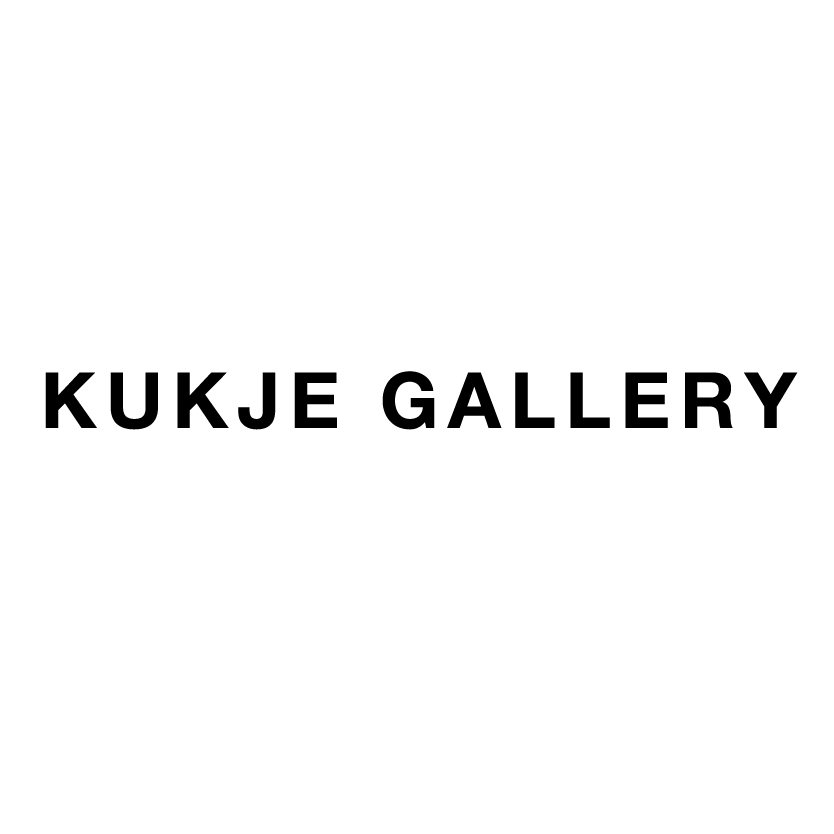Dark Clouds Loom Over Artistic Freedoms in Germany
By ANNETTE MEIER

Exterior view of the Reichstag building in Berlin. Photo by Jorg Braukmann. Courtesy Wikimedia Commons.
After the German parliament passed a controversial resolution on November 7, which curbs state funding for any art and cultural projects with “antisemitic aims and content,” its repercussions are already rippling through the country’s cultural landscape.
Entitled “Never Again is Now: Protecting, Preserving, and Strengthening Jewish Life in Germany,” the bill was initially proposed in the months following Hamas’s attack on October 7, 2023, to combat antisemitism, despite opposition from legal experts and civil society groups. The cross-party resolution, which is nonbinding, declares that “art and cultural events and institutions should . . . apply antisemitism-critical codes of conduct and awareness strategies to guide their actions,” and that the German state will withhold funding from organizations that “question Israel’s right to exist, call for a boycott of Israel, or actively support the Boycott, Divestment, Sanctions (BDS) movement.”
Various NGOs and Jewish intellectuals in Germany have condemned the parliamentary measure, predicting that it will stifle freedom of expression while suppressing legitimate criticism of Israel’s government’s policies. These concerns were justified as, just two weeks after its implementation, the bill has already begun to adversely affect artists and art organizations in the country.
In Karlsruhe, southwestern Germany, the Schelling Architecture Foundation rescinded one of its EUR 10,000 (USD 10,590) awards from British artist James Bridle (who uses they/them pronouns) after they signed an open letter (along with 5,500 other prominent international writers) pledging to boycott Israel’s cultural institutions “that are complicit or have remained silent observers of the overwhelming oppression of Palestinians.” Bridle was informed just two days before the official awards ceremony on November 20, via an email stating that the foundation’s committee had unanimously decided to revoke the prize on account of the letter as well as Germany’s new antisemitism bill. In a press release, the foundation said that it is not accusing Bridle of antisemitism, and that it “respect[s] the right to express political views” but “can neither support nor be associated with a call for the cultural isolation of Israel.” Additionally, the foundation explained that it bears a responsibility to cultivate “awareness of Germany’s national history,” which Bridle’s signature directly counters.
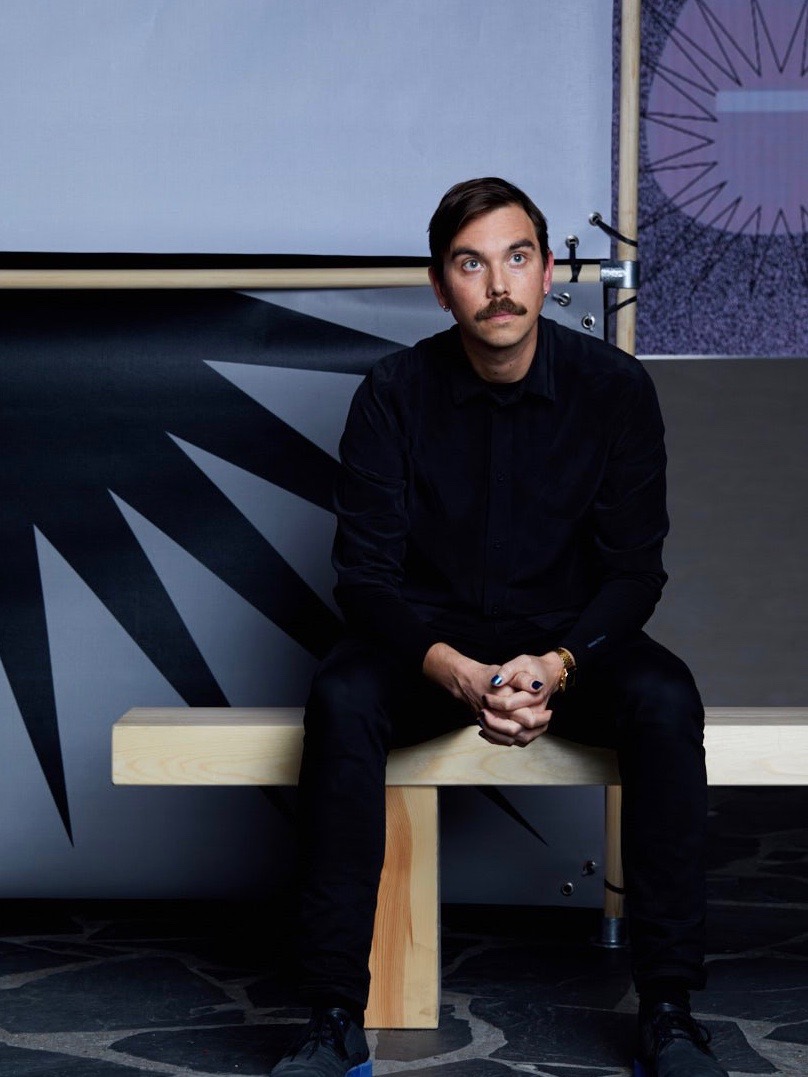
Portrait of JAMES BRIDLE. Photo by Mikael Lundblad. Courtesy the Onassis Foundation, Vaduz.
Bridle was announced as the recipient of the biennial Schelling Architecture Theory Prize in June for their “outstanding contributions to architectural theory.” Speaking with The Guardian, the Athens-based artist revealed that the Schelling jury had praised their book Ways of Being (2022), which touches upon Israel’s apartheid wall in the occupied West Bank. Bridle added that the foundation’s decision is “an accusation of antisemitism, which is abhorrent . . . given the organization’s own history,” referring to the late German architect Erich Schelling who was active in the Nazi party and its paramilitary wing between 1933 and 1945—and whom the foundation is named after.
On November 19, Bridle responded to the foundation’s decision in an article for ArtReview: “I don’t believe the onus should be on artists to act better and more ethically than the well-funded institutions and organizations they depend upon. It is the duty of those institutions to act ethically—and be aware of those they offer funding to.” They added that “[i]t is impossible to separate causes and politics in the way that the Schelling Foundation, and other institutions, want to.”
Amid Germany’s unwavering support for Israel and the latter’s increasingly aggressive military operations across the region from Iran to Lebanon and Yemen, German cultural institutions have faced backlash for their complicity in the humanitarian crisis. Most recently in Berlin, the Neue Nationalgalerie has come under fire for its upcoming symposium on November 24, titled “Art and Activism in Times of Polarization: A Discussion Space on the Middle East Conflict,” which the museum says will address “themes of antisemitism, racism, artistic freedom, and expressions of solidarity within the art world” through a “constructive, long overdue debate.” Pro-Palestine activists pointed to the underhanded cultural diplomacy at play, given that the Neue Nationalgalerie is part of the Berlin State Museums, which receive federal government funding.
In a social media post from last week, Strike Germany—a collective of cultural workers supporting Palestinian liberation—accused the Neue Nationalgalerie of trying to make itself “look like a safe and reliable . . . institution, as though that were possible in the increasingly hard-line Zionist German state that funds it.” The post further decried the guest lineup, which includes Israeli artist Leon Kahane, who claimed that it was antisemitic to use terms like “genocide” and “apartheid” to describe the crisis in Gaza, as well as Ruth Patir, Israel’s representative at this year’s 60th Venice Biennale. The Israeli Pavilion was heavily contested and ultimately closed in protest of the Israel-Hamas conflict.
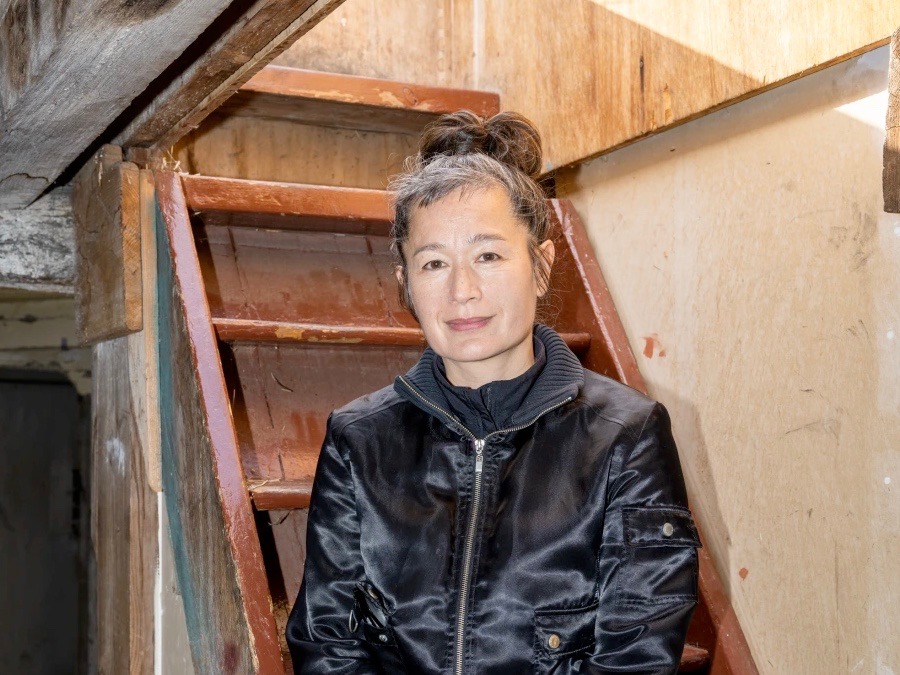
Portrait of HITO STEYERL. Courtesy Esther Schipper, Berlin.
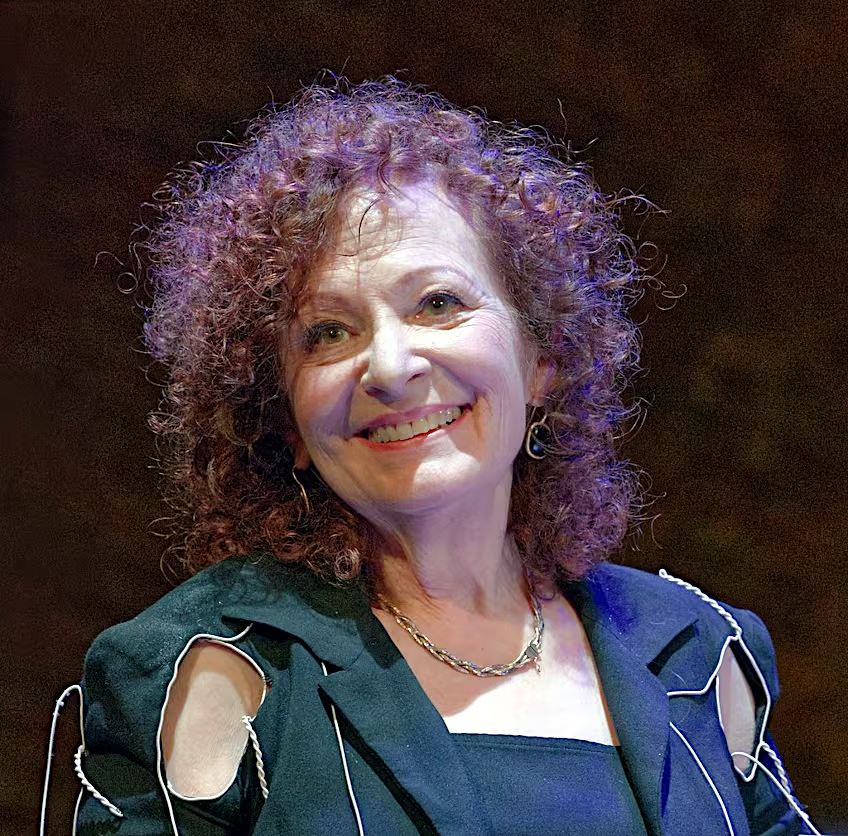
Portrait of NAN GOLDIN. Photo by Elena Ternovaja. Courtesy Wikimedia Commons.
Following Strike Germany’s post, the Süddeutsche Zeitung reported that filmmaker and video artist Hito Steyerl, who was originally a keynote speaker for the symposium, dropped out of the event. Steyerl is a vocal critic of Germany’s persisting yet unaddressed legacy of racism—in 2022, she withdrew her artwork from the Documenta 15 exhibition in Kassel, objecting to the organization’s handling of an antisemitism controversy. Upon her withdrawal from the symposium, other panelists followed suit, including South African artist Candice Breitz, whose exhibition at the Saarland Museum’s Modern Gallery in southwestern Germany was canceled last November over her condemnation of Israel’s retaliatory assault on Gaza.
Also entangled in the fracas is Nan Goldin’s exhibition “This Will Not End Well,” which is set to open at the Neue Nationalgalerie on November 22 the day after the symposium. An unrelenting advocate for Palestine, the American photographer was not informed about the event and urged the museum to cancel it, but was “only able to divorce [her] name,” per her response to Strike Germany’s post. She added: “It is clear to me that the museum organized this symposium as a prophylactic to secure its position in the German discussion—in other words, to prove they do not support my politics. They knew who they were inviting.”
In an updated press release addressing Goldin’s comments, the Neue Nationalgalerie stated that the symposium was “organized independently of the artist,” and that the museum informed her about it but did not ask her for her permission. After subsequently inviting Goldin to participate in the event, which she declined, the museum added: “We fully support the artist’s right to express her opinion, even if we don’t always agree with her.”
The fallout from Germany’s antisemitism bill has triggered discussions about artistic and political freedom of expression, while challenging the purported neutrality and self-righteousness of art institutions. As Israel intensifies its conflict across the region, and Germany stands firm in its support, the resolution sheds light on the covert power dynamics within the cultural field, signaling a precarious outlook for artists in Germany.
Annette Meier is an editorial assistant at ArtAsiaPacific.


